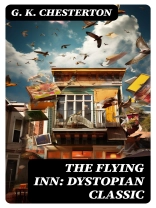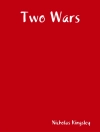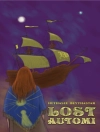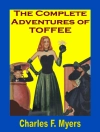In ‘The Flying Inn, ‘ G. K. Chesterton presents a dystopian narrative steeped in his characteristic wit and incisive social commentary. Set in a future Britain transformed by the sweeping tide of authoritarianism, the novel explores themes of nationalism, freedom, and the erosion of cultural identity through the whimsical adventures of its protagonists: an innkeeper and a sailor. Chesterton’s prose deftly combines humor with philosophical musings, revealing the absurdity of a society that prioritizes control over individual liberties. Rich with allegorical undertones, this work significantly reflects the author’s apprehension toward the burgeoning modernist trends of his time. G. K. Chesterton, a prolific English writer and social critic, was known for his deep-rooted convictions regarding faith, liberty, and the value of tradition. His experiences as a journalist and a fervent defender of the underdog led him to create a rich tapestry of characters and scenarios that challenge the status quo. The political landscape of early 20th-century England, marked by rising socialism and restrictive agendas, clearly influenced his writing, empowering him to craft a satirical yet cautionary tale about the loss of civil liberties. ‘The Flying Inn’ is a compelling read for those interested in the interplay of humor and philosophical inquiry in literature. Chesterton’s blend of fantasy and reality offers a thought-provoking lens on contemporary societal issues, urging readers to consider the price of complacency. Ideal for fans of dystopian fiction and readers seeking an engaging yet critical exploration of human nature, this novel is a timeless reflection on the enduring struggle for freedom.
Despre autor
Gilbert Keith Chesterton (1874-1936) was a prominent English writer, poet, philosopher, and Christian apologist, known for his iridescent wit and an imaginative storytelling style that has beguiled readers for over a century. Chesterton’s literary corpus spans a wide array of genres, including detective fiction, like his celebrated Father Brown stories, literature and cultural critiques, philosophical and theological musings, and poetry, which together exemplify his broad intellectual pursuits and deep moral convictions. Among his numerous works, ‘The Flying Inn: Dystopian Classic’ stands out as a satirical novel that offers incisive commentary on societal restrictions and religious hypocrisy through a tale of resistance and human spirit in a rapidly changing world. His fiction often intertwines themes of whimsy and paradox, with ‘The Flying Inn’ reflecting his distinctive approach by using a dystopian narrative to critique modern ideologies. Chesterton’s elegant prose, clarity of thought, and fondness for paradox has significantly influenced various literary circles and thinkers. Furthermore, his enduring influence on both Christian apologetics and English literature is evident in his canonization as a literary figure and defense of the Christian faith.












